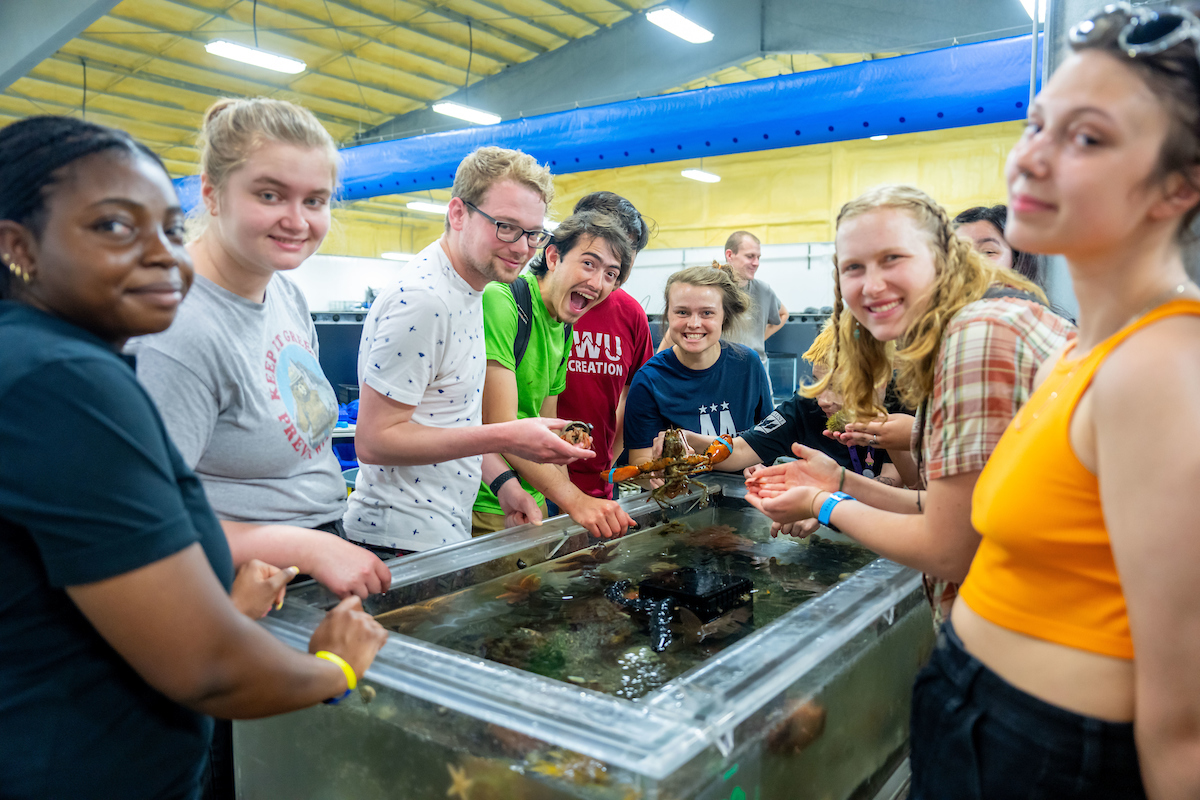
New UMaine program works with Extension to enhance blue economy through education, outreach and tuition assistance
In her first year of full-time employment with University of Maine Cooperative Extension, Leah McCluskey taught youth how to make miniature lava lamps. She led the students through an experiment that combines sodium alginate, a compound derived from seaweed, and calcium chloride inside a test tube to form the familiar funky bubbles. The experiment gave her a chance to talk to students about seaweed aquaculture in Maine, sharing why it is important to the state economy and in what ways extractions from the plant can be used.
“Getting to see youth explore their sparks, taking something that they might not have been traditionally interested in and putting a fun spin on it has been really rewarding for me,” McCluskey said.
Through this one activity, she reached over 200 youth who may not have otherwise been exposed to marine sciences or the idea of pursuing a career working on the water. She also taught 75 teachers how to do the activity in their classrooms to reach thousands more across the state.
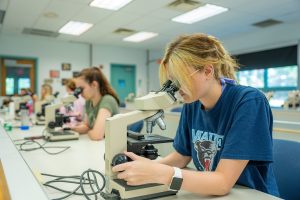
McCluskey was introduced to UMaine Extension through an internship during her undergraduate studies at the University of Maine School of Marine Sciences. Her college to career pathway is an example of how UMaine and Extension hope to use aquaculture to connect with youth across the state, ignite their interest in marine sciences and introduce them to opportunities in Maine’s growing blue economy, industries that use ocean resources for economic growth while maintaining healthy ecosystems.
A new program in the School of Marine Sciences, Science Education Addressing the Blue Economy and Rural Success (SEA BEaRS), aims to do all that and more.
With a $2.5 million grant from the National Science Foundation (NSF), SEA BEaRS intends to bolster the next generation of marine scientists and industry leaders, equipping students with skills and knowledge to address pressing environmental challenges and contribute to the sustainable growth of Maine’s coastal and marine industries.
Scarlett Tudor, research and outreach programs coordinator for Extension and co-lead for the SEA BEaRS program, was raised in rural Ohio and said she struggled to find mentorship in her career path. As a first generation student, she said gaining access to a network of mentors and hands-on experiences helped her succeed in college and see herself as a scientist.
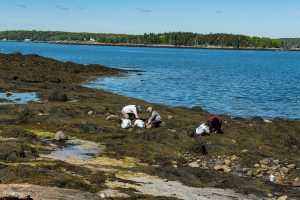
The SEA BEaRS program targets rural access to education and will support up to 25 Pell Grant-eligible undergraduate students over the next five years who are pursuing degrees in marine sciences, providing tuition assistance, internships, research opportunities and professional development. In the fall 2024 semester, a select group of first- and second-year students were chosen as the first cohort to serve as the foundation of the program.
“Having scholarships and funding for students is really critical to making education equitable,” Tudor said. “Maine ranks third in the nation for lowest debt to income ratio, which makes it an interesting case study in taking on debt. This reluctance can be a factor in people’s decision to go to college.”
Tudor said many UMaine students work at jobs unrelated to their field of study to pay for necessities like food or lodging, not just to have additional spending money. SEA BEaRS will provide those students with an opportunity to earn money while gaining experience in their field in a supportive environment where they can explore new ideas.
The program aims to attract students who have a passion for marine sciences but, for monetary reasons, never thought of college as an attainable goal. The NSF grant delivers the financial support those students need to afford a college education. Equally important, SEA BEaRS helps students connect with diverse UMaine programs like Extension, 4-H, the Maine Center for Research in STEM Education (RiSE Center), the Aquaculture Research Institute and the Darling Marine Center, creating a well-rounded college experience.
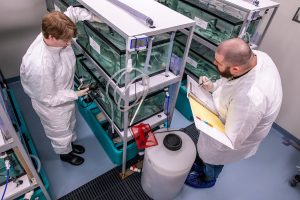
“Our goal with SEA BEaRS is not just to support students financially, but to empower them to become leaders in marine science and policy,” said Heather Hamlin, director of the School of Marine Sciences and SEA BEaRS co-lead. “Through research opportunities, industry partnerships and mentorship from our distinguished faculty, students will gain the experience and networks they need to thrive in the blue economy.”
The intention for the first year is to lay a solid foundation on which the program can grow. Organizers developed the initial concept to be flexible and ready to adapt to student needs. The first cohort will help shape details of the program and provide feedback on the types of barriers they are experiencing and the areas in which they need more support.
SEA BEaRS students will participate in specialized training programs that cover topics including marine ecology, oceanography, aquaculture and environmental policy. They will also have the opportunity to engage in interdisciplinary research projects that address challenges facing Maine’s coastal communities, such as sustainable fisheries management, climate change adaptation and coastal resilience.
One of the program’s key features is its emphasis on experiential learning. Students will work closely with faculty mentors on research projects that align with their academic interests and career goals. They will also have access to the Darling Marine Center and other state-of-the-art UMaine facilities, where they can conduct fieldwork and gain practical experience in marine sciences.
For the outreach aspect of the program, SEA BEaRS students will create educational materials for youth in UMaine Extension’s statewide 4-H programs. They will expose the youth to science concepts while also learning how college degrees can lead to careers that directly support Maine’s future economic growth.
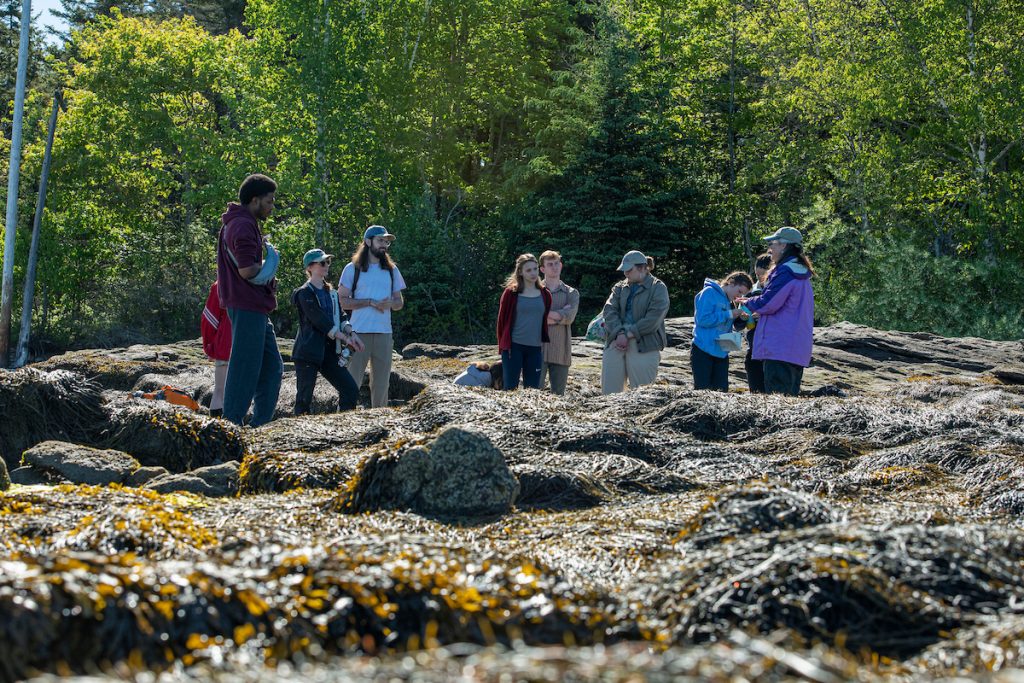
“Our goal with 4-H is to help kids find what we call their ‘spark,’ that thing that they’re interested in, and then showing them career paths that are within that,” said Tudor. Maine has youth who have never been to the ocean, she said, and outreach should connect more with those non-coastal rural communities.
“Sometimes all it takes is a single touch tank event,” Tudor said.
Financial support for broader reaching touch tank events, where youth can directly interact with aquatic life, is another goal of SEA BEaRS.
SEA BEaRS students will also help develop new micro-credentials, which are short, flexible and affordable learning opportunities designed to deliver the practical skills needed by Maine’s employers. The process will help students gain a deeper understanding of aquaculture as they develop the curriculum for micro-credentials on water quality, biology, aquatic animal behavior and touch tank outreach for future learners.
The SEA BEaRS program was forged through a collaboration with the School of Marine Sciences, UMaine Extension 4-H and the Center for Cooperative Aquaculture Research.
“Collaboration is key to the success of the SEA BEaRS program,” said Hamlin. “By working closely with our partners, we can ensure that our students are not only well-prepared for the workforce but also positioned to make meaningful contributions to the sustainable development of Maine’s marine resources.”
Contact: Melissa Arndt, melissa.arndt@maine.edu.
About University of Maine Cooperative Extension
As a trusted resource for over 100 years, Extension has supported UMaine’s land and sea grant public education role by conducting community-driven, research-based programs in every Maine county. UMaine Extension seeks to build thriving communities and grow the food-based economy, focusing on aspects from production and processing to nutrition, food safety and food security. Extension also conducts the most successful out-of-school youth educational program in Maine through 4-H which offers hands-on projects in areas like health, science, agriculture and civic engagement and creates a positive environment where participants are encouraged to take on proactive leadership roles.
